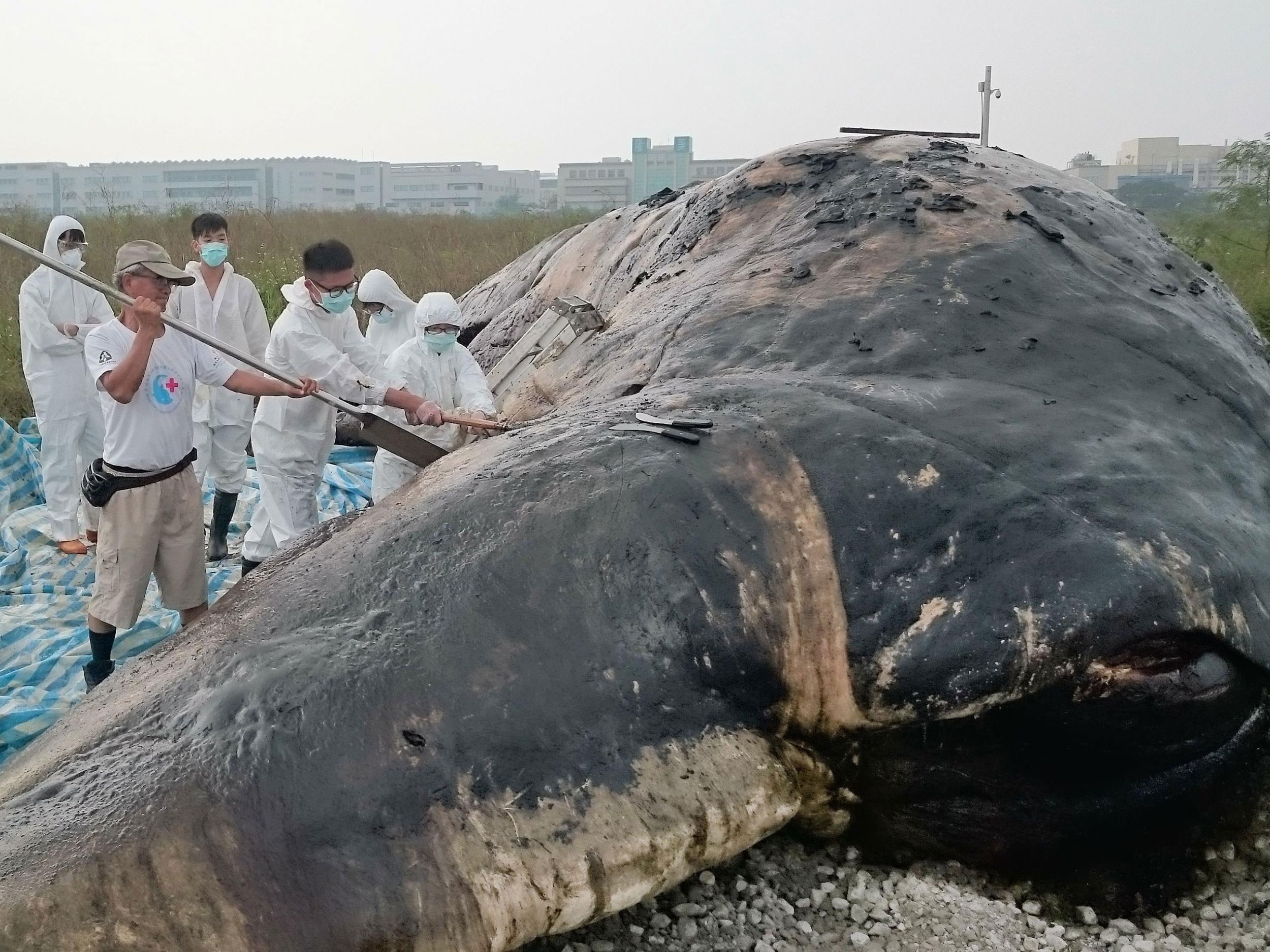Huge mass of rubbish, including plastic bags and fishing nets, found in dead whale's stomach in Taiwan
The sperm whale's stomach contained plastic bags and fishing nets

Your support helps us to tell the story
From reproductive rights to climate change to Big Tech, The Independent is on the ground when the story is developing. Whether it's investigating the financials of Elon Musk's pro-Trump PAC or producing our latest documentary, 'The A Word', which shines a light on the American women fighting for reproductive rights, we know how important it is to parse out the facts from the messaging.
At such a critical moment in US history, we need reporters on the ground. Your donation allows us to keep sending journalists to speak to both sides of the story.
The Independent is trusted by Americans across the entire political spectrum. And unlike many other quality news outlets, we choose not to lock Americans out of our reporting and analysis with paywalls. We believe quality journalism should be available to everyone, paid for by those who can afford it.
Your support makes all the difference.A whale washed up in Taiwan was found to contain a huge mass of rubbish in its stomach.
Marine biologists in the country said it's likely the rubbish was a big contribution to the sperm whale’s death.
The whale, which measured at 15-metres, was washed up in Tainan, south Taiwan. It had already been returned to the ocean three days previously after becoming stranded in Tongshi.
Marine biologists from National Cheng Kung University conducted an autopsy and found enough plastic bags and fishing nets to fit an excavator bucket, according to the Association Foreign Press news agency.
Professor Wang Chien-Ping, head of the Whale Research Centre at the university said: “The large amount of man-made garbage in the stomach could reduce its appetite and cause malnutrition. It was likely a critical cause of death.”
Professor Chien-Ping said it’s possible the whale suffered heart or lung disease as well as other possible infections.
Richard Harrington of the Marine Conservation Society told The Independent: It is highly likely that the health of many species of marine animal is harmed by plastic, whether through ingesting it, or simply being tangled up in it.“
”We know that at least 177 marine species have ingested litter items and 111 of the world's 312 species of seabird are known to have accidentally eaten plastic. Other organisms such as sea cucumbers and lobsters have also been shown to ingest plastic litter."
"Ingestion of litter can cause physical damage and mechanical blockage of the oesophagus and digestive system, leading to internal infections, starvation and death.”
Join our commenting forum
Join thought-provoking conversations, follow other Independent readers and see their replies
Comments